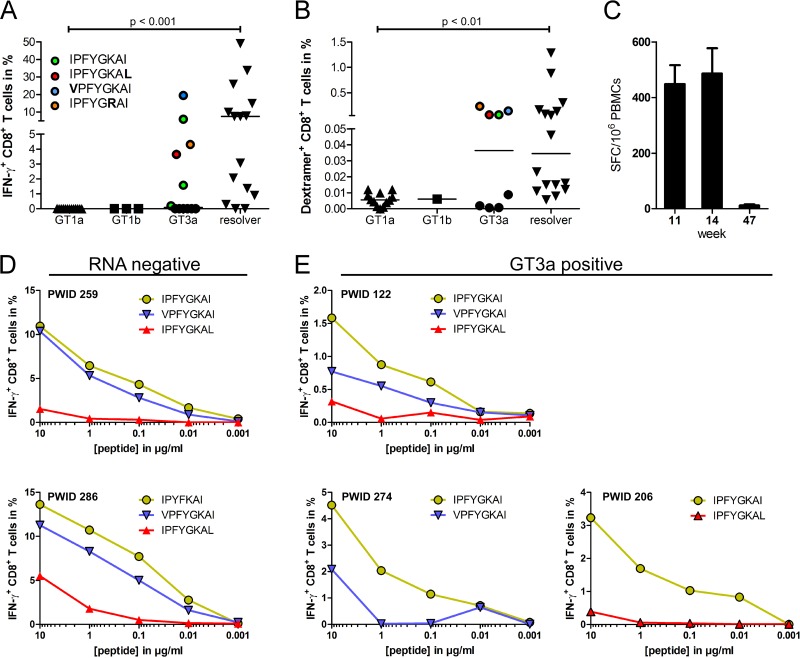FIG 1.
CD8+ T cell response against the epitope IPFYGKAI1373–1380 in PWID exposed to HCV. (A) T cells were expanded for 10 days from PBMCs in the presence of the peptide IPFYGKAI. After in vitro expansion, the cells were restimulated with the peptide before intracellular IFN-γ staining. The autologous viral epitope sequences from GT3a-infected PWID with detectable responses are indicated. (B) HLA-B*511373–1380-specific T cells were detected ex vivo via IPFYGKAI-specific HLA-B*5101 dextramer staining. (C) The HLA-B*511373–1380 specific T cell response was determined by ELISpot assay at the indicated time points in a patient with acute HCV infection. (D and E) Serial peptide dilutions of the prototype (green), I1373V (blue), or I1380L (red) sequence of the B51-1373 peptide were tested in RNA-negative (D) or GT3a-infected (E) patients. Statistical comparisons between groups in panels A and B were done with a Kruskal-Wallis test, and significant P values are indicated.

